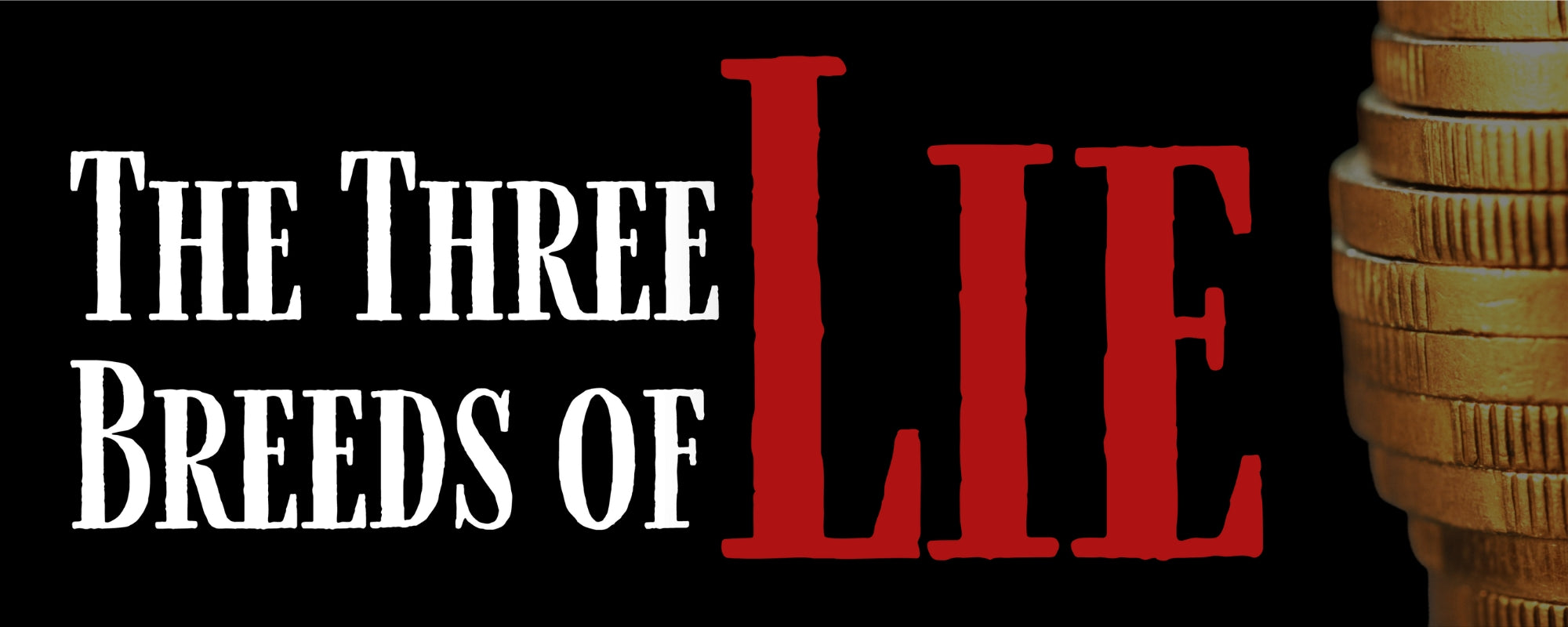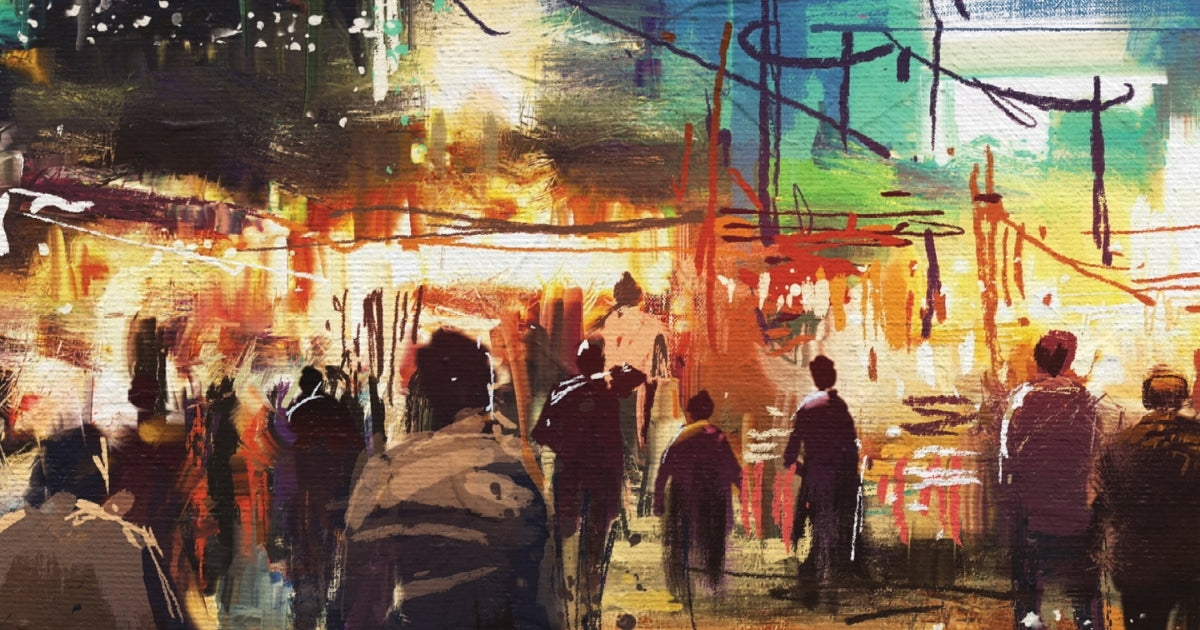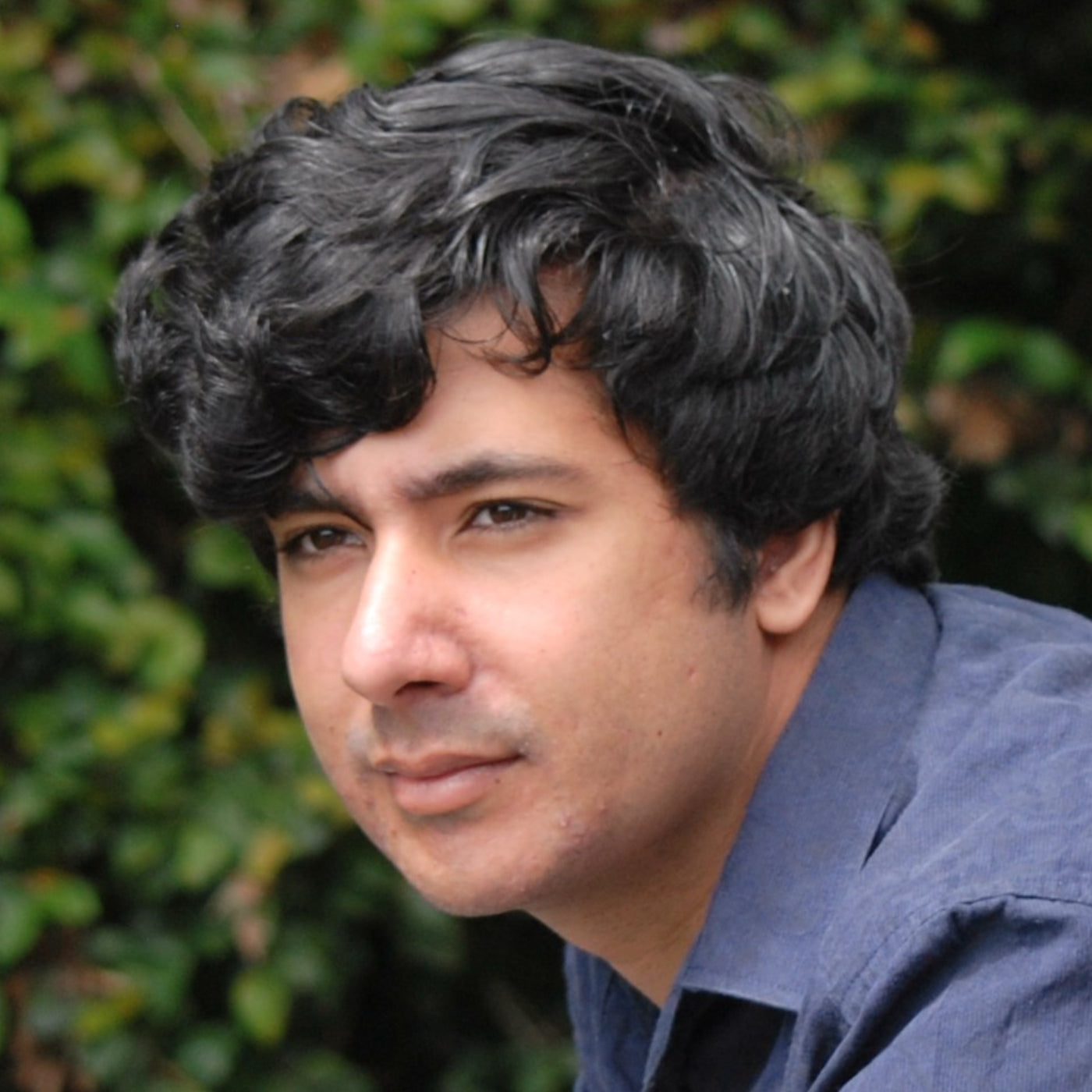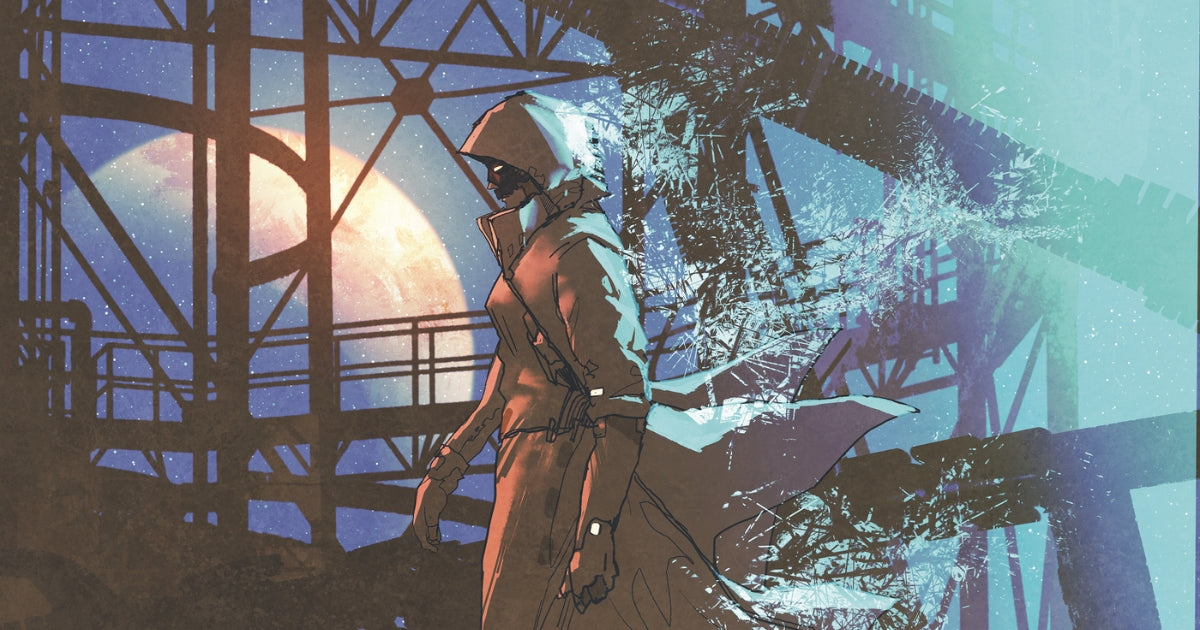

The Three Breeds of Lie
By T. M. Hurree
Mr. Mishra is the third gene agent I’ve seen today. The first had dark grey scales and a bifid tongue which flickered nastily as he rejected Son. The second had waxy, translucent skin pulled taught over fat and gristle, and pulsing arteries supplying all the muscles required to form the word nahin, Hindi for no. Mr. Mishra has three arms—two sprouting from the left shoulder—all fully functional. Genes like that cost money. Serious money, enough to feed every family in my ramshackle street for the rest of our lives. His office is clean, bright, air-conditioned, and even if he doesn’t purchase Son’s genetic code, this meager scrap of comfort almost makes the last nine months worthwhile.
“What’s his name?” Mr. Mishra cradles the baby in two strong hands.
“Son. Just Son.” It’s easier if they’re never given names. Easier still if I don’t even consider him my baby, my son.
With his third hand, Mr. Mishra grabs a torch off his desk and swings it over Son’s face. The baby has slit pupils, like a cat. Otherwise, he is perfectly healthy.
“There’s a stray cat that lives in the gutter outside my house.” I’ve practiced the pitch a hundred times already. Said the words over and over, under Husband’s careful supervision, till they flow smooth as river water. “Husband’s been trying to catch it for years, but it never comes out during the day. Only hunts at night.”
“I assume you’re approaching a point?”
“The cat has eyes like Son’s. That’s how it hunts at night. You could sell these eyes to the military. They can breed soldiers who see in the dark.”
Mr. Mishra shakes his head. “It would be cheaper and more effective to invest in infrared drones.”
Of course it would be. Machines are always cheaper, more effective. The first two agents said the same thing, just as Husband feared they would. Clever Husband, clever me, we’ve learnt to prepare plans within plans.
“What about the shape of the pupils? There must be lots of rich parents wanting their children to stand out. Think how jealous the other boys and girls will be when they meet a child with cat eyes!”
Mr. Mishra sighs, lowering Son into the sleek white crib by his desk. “I don’t think this baby can see at all. Maybe I could sell cat eyes as the latest fad, but no parent will pay to have their children born blind.” His fifteen fingers dance across his keyboard. “Would you like to foster Son with us today? I can offer you fifty thousand rupees for his cells.”
“The agent at GeneBank offered me fifty-four thousand.”
This is a lie. He only offered fifty-two, but a man like Mr. Mishra is far too busy to haggle over a baby with bad genes. Inside his crib, Son gurgles happily, utterly unaware he’s been born with the wrong sort of mutation. It is easier not to look at him. Not to hear him.
“How does fifty-five sound?”
I nod, as Mr. Mishra counts out the money on his desk. “What will happen to him?”
“We’ll find a wealthy overseas couple who wants a child, but for whatever reason, cannot conceive one for themselves. Son will be given a name, and a good education. He’ll grow up in a rich country, with plenty of opportunity to succeed. America, or the United Kingdom, most likely. He will have a good life.”
Like mine, his speech is well rehearsed. Mr. Mishra has delivered it many times before. I have heard it many times before, but I must hear it again. Every time. This is the first breed of lie. The lies they tell us. The lies that let me live with myself. The lies that soothe me when I wake screaming, tangled in sweaty bedsheets. Maybe my children really are living good lives with families who can provide for them. Maybe I really have done the right thing. Maybe I am not a monster after all.
Maybe. Maybe. Maybe.
“You were close this time.” Mr. Mishra smiles, as he ushers me out of his cool, clean office. “I’ve got a good feeling about your next child. It might be worth a lot of money. A lot of money. I hope you’ll consider our agency first.”
“Thank you, Mr. Mishra. I will.”
Two dozen mothers are queued outside. It’s obvious which ones have prior experience with the business, and which ones don’t. Some newer mothers tremble, pallid and sweaty. Others weep openly. Some play with their babies, giggling as they tickle their little toes. They are the ones I pity most. The experienced mothers stare straight ahead, ignoring the babies swaddled in sari scraps, blocking out every cry and gurgle. They are rapidly running out of chances to make their fortune. A few more years and they will have nothing—no children, no money, no future.
One young mother bares her breast for a hungry baby with webbed feet. I would like a daughter with webbed feet. She could swim far, far away, to a rich country where women build robots and write software and needn’t sell their very soul. A country where people have so much money, they choose to mutate their children because it’s fashionable.
That webbed feet mutation might be worth something. That mother might have a chance.
🧬
I made the mistake of naming my first child. Husband warned me not to, but I couldn’t help myself. Sinha, my beautiful baby boy. Sinha, Hindi for lion. He was born with long, sharp fingernails. Claws, almost. When we fostered him, it felt as though the gene agents had ripped away a piece of my own wretched code, part of what made me who I am. Part of what made me human. I grew too weak to drink, too dehydrated to cry. Whenever Husband forced a spoonful of rice through my clenched jaws, it reappeared moments later, soured by bile. I thought I would surely die. I wanted to die. I deserved to die. But holy Yama would not let me. The great deva would not snare my soul in his cosmic noose and drag me down to be punished with the other sinners. Coward that I was, I recovered. I survived, and with every child that followed Sinha, surviving became a little easier. I came to understand the choice so many women had made before me—become cruel, callous, selfish, or die.
Compassion is expensive in the slums, and we are so very hungry.
🧬
The heat batters me when I step outside. Mopeds swerve through traffic. Sports cars bear passengers with long simian tails and purple skin, trying not to stop lest they be swamped by starving beggars. Horns blare. People argue. Scraps of plastic flutter in the warm breeze, clogging up gutters and catching in dead weeds. The city reeks of smoke and stale grease.
A grubby pharmacy squats in the shadow of the NextGene tower, like a parasite suckered to its host. Half a dozen steps carry me between the front doors. Maybe it’s just an extremely convenient coincidence they’re so close together? Maybe. The fat old pharmacist watches me with bloodshot eyes. What will he do when the machines replace him? It’s only a matter of time. It can’t be that hard to design a robot that stares eerily at women as it dispenses their drugs and takes their money. Is he lucky, because he will never be forced to sell his body to survive? Or unlucky, because one day he will have nothing else to sell?
“What do you need?” The pharmacist has a gravelly voice, like Husband. He must smoke too much as well.
“Ambianex. For a sore throat.” Where I grew up, little girls learnt drug names from the moment their first words dribbled forth.
The pharmacist shambles behind the counter, where all the bottles and boxes are kept secure. The walls are plastered with advertisements. According to a bright green cartoon lady, one box of Optichone can cure blindness in as little as three weeks. It is best to focus on all the good that drug has done, the many millions of people it has cured. I try not to wonder who the drug companies tested their pills on, and how much their mothers fostered them for. Maybe Optichone was tested on rationally consenting adults? I can’t say for certain it wasn’t. It’s a slippery word, maybe. A sliver of doubt is enough for maybe to worm its way into your skull and eat away at the parts of your brain responsible for compassion.
“Ten thousand rupees,” growls the pharmacist, as he slams a bottle of Ambianex onto the counter.
“Last time it was seven thousand.”
“Ten thousand rupees.”
That’s nearly a fifth of the money from fostering Son. Forty-five thousand isn’t much to last nine months. We won’t be able to afford a lot more than rice and cigarettes. We’ll need to skip meals. Maybe Husband can find a few odd jobs here and there, scrounge what he can.
“Fine.”
I drop the money in the pharmacist’s sweaty palm, but he grips the bottle tight when I try to take it.
“Legally, I’m not allowed to sell you this if you’re pregnant, or planning to become pregnant in the near future,” he growls.
“I’m not. I promise I’m not.”
“Legally, I need to inform you that Ambianex is a class two teratogen. It can cause severe mutations in the developing embryo.”
“They’re for Husband,” I say, and he releases the bottle.
These are the second breed of lies. The lies we tell them. The lies that keep their money safe from lawsuits. The lies that reach across the globe to convince wealthy parents their child’s mutations are just harmless fun. Maybe it really is just a coincidence that so many mutations are patented by poor women from poor countries? Maybe my child’s mutations are the rare few discovered by chance? Discovered perfectly ethically?
Such a small word, maybe. Only five letters. In Hindi: Shayad. In Punjabi: Saida. Such small words, to hide so much horror behind. We are the forgotten women.
🧬
Hundreds of bodies are pressed into my train carriage, crushing in from all sides. Young men hang out of open doors and windows, whooping excitedly as the wind rips through their wild black hair. The stench of sweat hangs ever present, and every few minutes sulphurous gas sweeps through the carriage, leaving coughs and splutters in its wake. The best way to breathe is on tiptoes, head tilted high.
The roof is plastered with advertisements for NextGene. Every ad shows smiling photos of Jasmit Khan, alongside swirling Hindi letters: COULD THIS BE YOU? There is nothing remarkable about Jasmit’s appearance. Warm, brown eyes. Dark skin. Black hair. I could believe she was specifically bred to be a blank slate for women like me to project ourselves onto. Every woman on this train knows her story. Jasmit birthed a baby with brittle spines instead of hair and sold the mutation to a French popstar in need of a gimmick. Now she lives in chilly Canada and probably drives fancy sports cars which smell of freshly chopped pine, and gorges on sweet khulfi, and sandesh, and sticky golden gulab jamun.
The train squeals to a halt, and as bodies untangle and clamber free, I glimpse scenes in the city outside. Mounds of garbage accumulating outside hovels so old they were already ancient when my mother’s mother’s mother was born. Mourners gathering outside a distant temple, in which a thousand generations of mothers have gathered to pray for happy, healthy babies. A thousand generations, who left fruit and burnt incense for the great goddess Renuka, who gave her life to save her sons, and Parvati, whose maternal love awakened her son from molded clay. A thousand generations of mothers, who somehow survived without forsaking their children.
Angry crowds of unemployed men protest the RoboCorp factory, where machines build more machines to replace us. Two weeks ago, the RoboCorp factory in Karnataka was burnt down by arsonists. It didn’t bring any jobs back to the slums, but it must have felt good to see flames swallow the factory, to hear the crackling and crumbling, and screams of machines as they melted back to raw metal.
I heard from a woman washing clothes in the river that only one in a thousand mutations are beneficial. Of these, an even smaller fraction are actually profitable. Every woman on this train knows Jasmit Khan’s story. We never see any advertisements for the other nine hundred and ninety-nine thousand, nine hundred and ninety-nine women who forsake their children for little more than scraps.
🧬
The stray cat is not hiding in the drain when I return home. Most days, the sunlight catches a pair of amber eyes, watching from the safety of the shadows. Today, there is only darkness. Perhaps Husband finally scared it away? He is waiting just inside the front door. He has been cooking, judging by the savory scent wafting from the kitchen, and the sound of pots boiling.
Husband does not ask what happened today. He knows by the hunch of my shoulders, the pinch in my expression. I didn’t drive home in a fancy sports car, did I? He wraps me in his leathery arms, holds me tight, brushes away my tears with his tar-stained thumb. I can do this. I can survive. But not if we acknowledge it. The moment we acknowledge it, it becomes real.
“Come Wife. I have a treat.”
He is an old man, Husband. Old enough to have worked in a factory making clocks and sneakers, before the rich countries discovered that machines are always cheaper and more effective. Old men are the most profitable now. Their seed is rotten, the genes twisted. Older women are more profitable too, but at some point, their soil becomes too rotten. I am Husband’s third wife. I am running out of time. He takes my hand and leads me into the kitchen.
“What is this?” I peer into the pot. Shreds of stringy meat bubble about, spiced by herbs from our windowsill garden.
“Pigeon.”
“How did you afford it?”
“I didn’t. Silly bird smacked right into our window, if you can believe it.”
“I suppose I can.” That’s certainly not impossible, and what do I have to gain by probing any deeper? Nothing at all.
Husband ladles me a bowl, and I drop a purple tablet into the still simmering curry.
“Next time will be better, Wife. I promise. This time next year, your face will be plastered on all the ads. We’ll be gorging on gulab jamun, somewhere nice and cold.”
“Maybe.”
“We’ll be driving fancy sports cars, and we’ll finally be rich enough to raise a son. Or a daughter, if you prefer. Think how happy we’ll be.”
I smile. “I’d like that a lot, Husband.”
These are the final breed of lies. The lies we tell ourselves. The lies that keep us docile. The lies that keep us queuing patiently outside the gene agencies, instead of burning the fuckers down and basking in the heat of the blaze.
Maybe I’ll be the lucky mother.
Maybe I’ll be the rich and famous one-in-a-million.
Maybe, just maybe, things will finally get better.
The Author

T. M. Hurree



